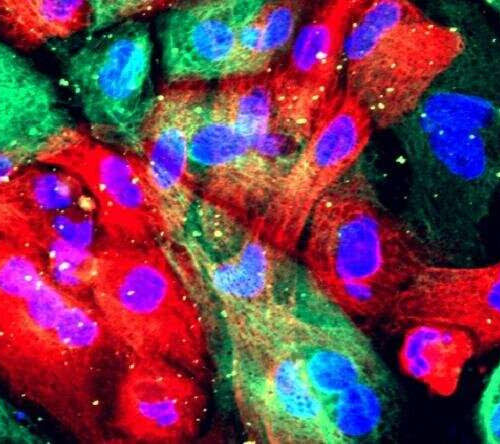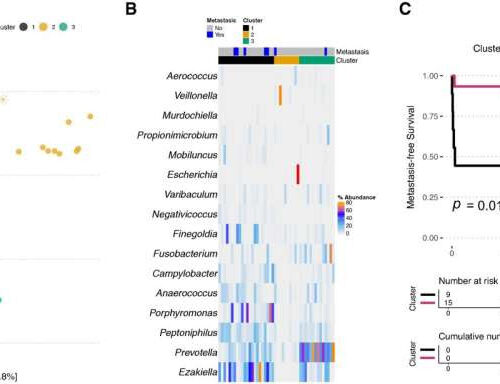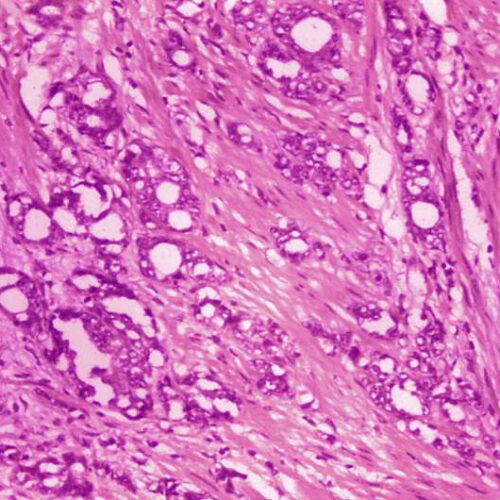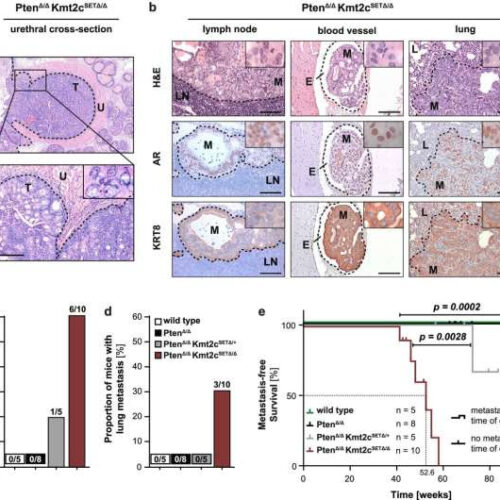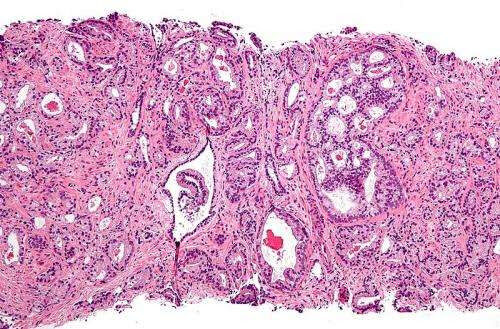SWOG CANCER RESEARCH NETWORK Access to therapies approved over the last decade has significantly lengthened median survival times in patients with metastatic hormone-sensitive prostate cancer. That conclusion comes from a large randomized clinical trial that tested a new treatment for these patients. The S1216 study was conducted by researchers from SWOG Cancer Research Network, a...
Tag: <span>Prostate cancer</span>
Aggressive prostate cancer linked to newly discovered bacteria species
By Rich Haridy April 20, 2022 Three of the bacterial species linked to aggressive prostate cancer are entirely new to scientists Depositphotos A landmark study has identified five types of bacteria associated with aggressive prostate cancer. It is unclear at this stage whether the bacteria is directly causing the cancer but the researchers are confident...
New prostate cancer treatment: NanoKnife uses electricity to kill cancer cells
by Emma Rose Johnson, Rush University Medical Center Prostate cancer cells. Credit: NIH Image Gallery Prostate cancer affects one in every eight men during their lifetime, making it the most prevalent form of cancer for males. For many, the standard of care means facing aggressive treatments that include radiation and the freezing or removal of...
Five types of bacteria linked to aggressive prostate cancer
by University of East Anglia Presence and composition of urine microbiota identify participants with a poorer prognosis. The figure presents an analysis of 16S OTU sequence from urine sediments. (A) Principal coordinate analysis (Manhattan distance) of family-level OTU data from urine sediments from 46 patients undergoing assessment for prostate cancer. Clustering with k-means suggested three...
Doctors suggest new names for low-grade prostate cancer
by Carla K. Johnson This 1974 microscope image made available by the Centers for Disease Control and Prevention shows changes in cells indicative of adenocarcinoma of the prostate. Some doctors say it’s time to rename low-grade prostate cancer to eliminate the alarming C word. About 34,000 Americans die from prostate cancer annually, but most prostate...
Pluvicto approved for PSMA-positive metastatic castration-resistant prostate cancer
The U.S. Food and Drug Administration approved Pluvicto (lutetium Lu 177 vipivotide tetraxetan) for treatment of adults with prostate-specific membrane antigen (PSMA)-positive metastatic castration-resistant prostate cancer (mCRPC) who have received androgen receptor pathway inhibition and taxane-based chemotherapy. Simultaneously, the agency also approved the first radioactive diagnostic agent for patient selection in the use of a...
Research team develops new screening assay for drugs targeting prostate cancer
by Mary Ann Liebert, Inc Prostate cancer cells. Credit: NIH Image Gallery A novel high-throughput screening assay is designed to identify inhibitors of the androgen receptor, which plays a critical role in the progression of prostate cancer. The assay could be used to identify new drugs to treat resistant forms of prostate cancer, as described...
Cause of metastasis in prostate cancer discovered
by Johannes Angerer, Medical University of Vienna KMT2C methyltransferase deficiency triggers metastatic dissemination of prostate cancer. a H&E stains of urinary tract obstruction by invasive PCa in a moribund Pten∆/∆Kmt2cSET∆/∆ mouse at 39 weeks p.p. at low (top) and high (bottom) magnification. Scale bars: 200 µm. T, tumor; U, urethra. b H&E-stained sections and IHC analysis of the...
Ultrasound scan can diagnose prostate cancer
by Imperial College London Micrograph showing prostatic acinar adenocarcinoma (the most common form of prostate cancer) Credit: Wikipedia An ultrasound scan can be used to detect cases of prostate cancer, according to new research. Researchers at Imperial College London, University College London and Imperial College Healthcare NHS Trust have found that a new type of...
Three-drug combination prolongs survival in men with metastatic, hormone-sensitive prostate cancer
MASSACHUSETTS GENERAL HOSPITAL BOSTON – Results from an international, randomized, double-blind, placebo-controlled, phase 3 clinical trial indicate that adding the androgen-receptor inhibitor darolutamide to androgen-deprivation therapy and chemotherapy prolongs the survival of men with metastatic, hormone-sensitive prostate cancer, a disease that is fatal in most cases. The study, which was conducted by a team led by investigators at...


